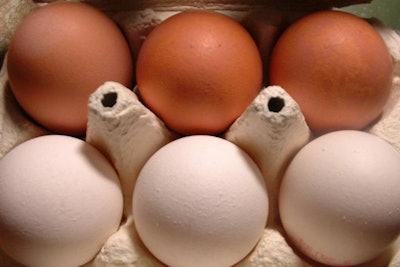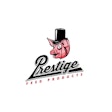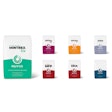
The largest egg producer in the United Kingdom, Noble Foods has applied for planning permission to expand storage capacity at one of its feed mills.
Last year, Noble Foods submitted plans to replace some existing buildings on its site at Clearwell Farm with new storage facilities. After consultation with the local community, the plans are being assessed by the local authority.
Planned changes at the feed manufacturing facility in Gloucestershire in the southwest of England involve the removal of two former poultry buildings. Limited to 600 metric tons (mt) in three silos, the firm wants to increase its storage capacity on-site, reports The Forester.
The planned changes are supported by the need to carry out feed milling operations on weekends. At these times, there is limited haulage availability to transport the needed raw materials from other Noble Foods’ sites. Additional silos would also allow for more than the current three feed ingredients to be stored on site. Moreover, the company says, the plans will reduce the number of heavy trucks visiting the site.
Near to Clearwell Farm are three environmentally important areas. These will not be impacted by its proposed construction plans, according to Noble Foods.
Despite these assurances, local people strongly objected to the plans when they were submitted at the end of last year. They cite concerns over the adverse environmental impacts of the feed mill.
Objections to the proposal were led by one group, according to the same source. It alleges that the company has been responsible for the pollution of local waterways and areas of ancient woodland. It also claims that the site presents a public health risk through the transfer of animal disease to people.
A decision on the planning application is expected in early March.
Noble Foods was approached for comment on this story.
Latest environmental project
Recently, Noble Foods demonstrated its environmental credentials by announcing it had signed up to the Water Roadmap.
This is part of the Courtauld Commitment 2023, a voluntary agreement from the climate action non-governmental organization, WRAP. The commitment facilitates action across the food chain to reduce food waste, greenhouse gas emissions and water use.
For its part, Noble Foods will focus on protecting critical water resources for the food supply, nature and local communities. Among its first actions has been to link up with a local charity, the Wye & Usk Foundation, setting up wetland pools to monitor phosphate levels in the water.
More on Noble Foods
Noble Foods was one of just two food companies in the country to have achieved the highest level of animal welfare. The firm was awarded Tier 1 Leadership in the Business Benchmark on Farm Animal Welfare (BBFAW) scheme in 2022.
Roots of Noble Foods go back more than 100 years. That’s when William Dean began selling eggs he had bought from small producers to communities in Tring, Hertfordshire. Business grew as Deans Farms expanded to supplying local groceries. Subsequently, the company acquired other food operations, and in 2006, Deans Foods became Noble Foods.
Three years later, the company launched the leading egg brand, the happy egg co. It also sells a brand of organic eggs.
According to the firm’s website, Noble Foods is the U.K.’s leading supplier of fresh eggs to retailers across the country, and also the market leader in egg products. Each week, it grades, packs and delivers 60 million British Lion eggs to its customers.
From six mills, Noble Foods’ Milling Division has an annual output of more than 800,000 mt of feed. As well as supplying its own vertically integrated farms, the business has grown over the past 20 years to become one of the country’s largest feed companies. It sells compound diets for poultry, pig and ruminant producers, and straight raw materials to home-mixers.
All its sites are approved under the Universal Feed Assurance Scheme and by a number of retailers. Furthermore, they are registered to manufacture medicated feedstuffs, with the British Egg Industry Council Lion scheme, and with the local authority under Feed Hygiene Regulations. Additionally, three of the Noble Foods’ mills are approved for the production of organic feeds.















